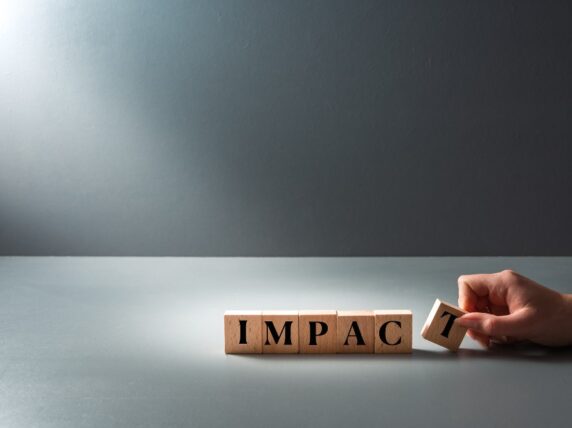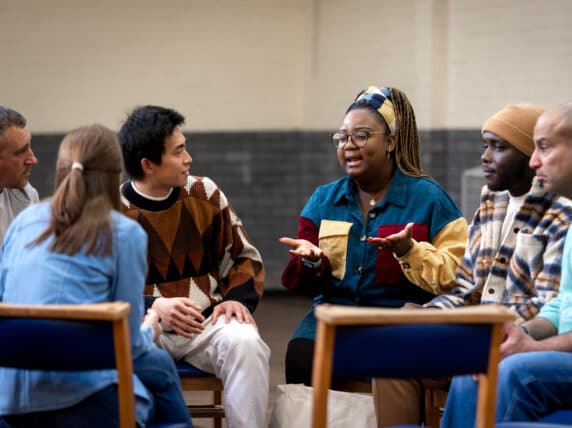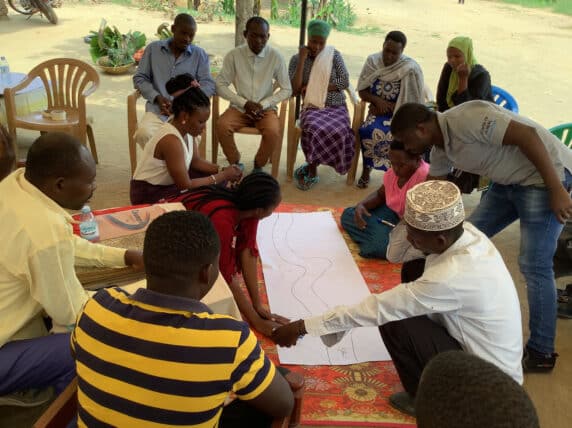Learning in partnership: Reflections from the Bond MEL group
Bond’s working groups are made up of individuals from across the sector, who come together to discuss challenges, share resources, and network with their peers.
The Monitoring, Evaluation & Learning (MEL) group is one of the largest, with over 450 members ranging from dedicated MEL professionals to those with a more peripheral involvement or interest in a particular aspect of evidencing development impact.
Like so many, we had been stuck behind screens since 2020, but at the end of last year we made our first return to in-person interaction. The theme of our event, chosen for its relevance to all group members, was how to work with our partner organisations in MEL.
To be clear, our members are primarily based in the UK, while the work they help to monitor, evaluate, or otherwise learn about is not. In a previous survey, which asked group members to select the types of activity that they were personally involved in or responsible for, “Conducting monitoring activities and collecting data, in-person or remotely” was by far the least selected of the 18 options. While over 90% of respondents were involved in “Designing monitoring tools or data collection processes”, the actual use of these tools and processes was usually down to someone else, often including programme partners.
Now, this survey result is not inherently a problem: note the words “involved in” are not “lead on entirely in isolation”. However, they highlight one of the differences in roles between what we’ll loosely call ‘Bond members’ and ‘our partners’, which, coupled with unequal power dynamics, can lead to irrelevant or harmful data being collected by and from inappropriate people, in unsuitable ways, at unhelpful times.
We’ve run a number of online sessions on decolonising MEL and promoting local leadership, so we aimed to develop this further through a participatory World Café in which to discuss the fundamentals of good partnership. We focused on three topics: localisation and shifting the power; practical ways of working; and necessary technical capacities, training, and assessment.
Common issues & solutions
As may be expected from most gatherings of MEL practitioners, we spent some time lamenting the restricted nature of so much project funding, along with its ties to rigid logframes, context-insensitive timelines, and donor-determined definitions of success. Given how little this top-down, tick box version of MEL adds to the understanding of what or how change is happening, it’s even arguable how much time we should expect our partners to spend on it at all. However, there are positive practices that we agreed are within our power:
Be transparent. Establishing an honest, open relationship from the very beginning will help partners feel comfortable enough to report negative findings or feedback that needs to be acted on. Fail Festivals can promote this. Reciprocity in due diligence processes (i.e. not asking for any organisational information or documents you haven’t yourself already shared, as practised by Integrity Action) is another good foundation.
Respect autonomy. Agree clear boundaries recognising all actors’ motivations for entering the partnership. Your definitions of success may not be the same, and that’s ok. Developing a shared Theory of Change – not just a logframe on steroids – will help everyone see how their work fits together.
Co-create meaningfully. Co-designing MEL tools and processes – from progress markers through to interview templates – will ensure they are relevant to, and meet the needs of, all necessary actors and environments. This means doing it at the right time, before targets are locked in with donors 5,000 miles away.
Prioritise learning. Ensure MEL plans are flexible and adaptable, and collect qualitative insight not just quantitative indicators. Foster a culture of reflective learning that allows and encourages partners to act on emerging findings, for example, by introducing feedback loops or regular two-way review processes. Ensure partners have sufficient funds within project budgets to collect, review, and act on meaningful MEL data.
Model the funding we want to receive. Where partners receive funding from – or through – our organisations, we must not repeat the mistakes we complain about in some other donors. We should care about partners’ long-term survival and effectiveness, and not replicate relationships that are merely transactional and defined by project timelines. Core funding should be provided to support strengthening of partners’ MEL capacities, alongside support to their other essential functions such as safeguarding.
Of course there are good donors already out there, often those with feminist funding principles, so we can learn from actors like Astraea to be more adaptable and effective.
Recognise reporting burdens. Reporting requirements are a capacity drain on all organisations, but especially smaller CSOs. Encourage donors and larger INGOs to be the ones to change, for example, by harmonising their standards and requirements. This will allow our smaller partners to spend more of their time doing the things they exist to do.
Acknowledge power. In all of this, recognise the unequal dynamics that exist between different actors. Advocate for partnership models that redistribute power and foster equal participation. Include MEL as an integral component in wider organisational plans and policies around decolonisation and locally led development. Simply passing on responsibility for tracking KPIs is not localisation.
You just had to be there…
Hopefully the above has given you a taste of our discussion. We know we’re not presenting anything earth-shatteringly new, but the conversations were rich and full of real-world experiences and examples, made all the better for, at last, being face-to-face. Of course, these were the shared experiences of mainly UK-based INGO staff, so our partners might disagree with all of it, and we need to be open to hearing that.
We also know that many of these issues are not MEL-specific, and indeed can’t be resolved by MEL teams alone. Almost every evaluator will, at some point, have been asked for a “participatory evaluation” at the end of a programme that never engaged meaningfully with its participants in design or implementation, when it is of course far too late. Similarly, good (or bad) partnerships are typically formed before MEL practitioners get involved, and keeping them alive and healthy involves a wider range of actors, from programme managers to finance teams.
We’ll be keeping the discussions going in the group, with future events being lined up throughout 2024 to talk about participatory video, organisational strategic results frameworks, and measuring the impact of advocacy. For those who are Bond members, we hope you’ll join us – or even if not, get in touch if you have something you think the group would benefit from hearing.
The Bond MEL group is currently chaired by Natalya Williams (World Vision), Daniel Burwood (Integrity Action), and Alastair Spray (INTRAC); with a steering committee comprised of Veronica Fletcher (All We Can), Paska Moore (Salvation Army), Angela Keenan (Link Education), and Alix Clark (SDDirect). The event was hosted by All We Can and Y Care International, and featured a presentation by SDDirect.
Category
News & ViewsThemes
MEL



